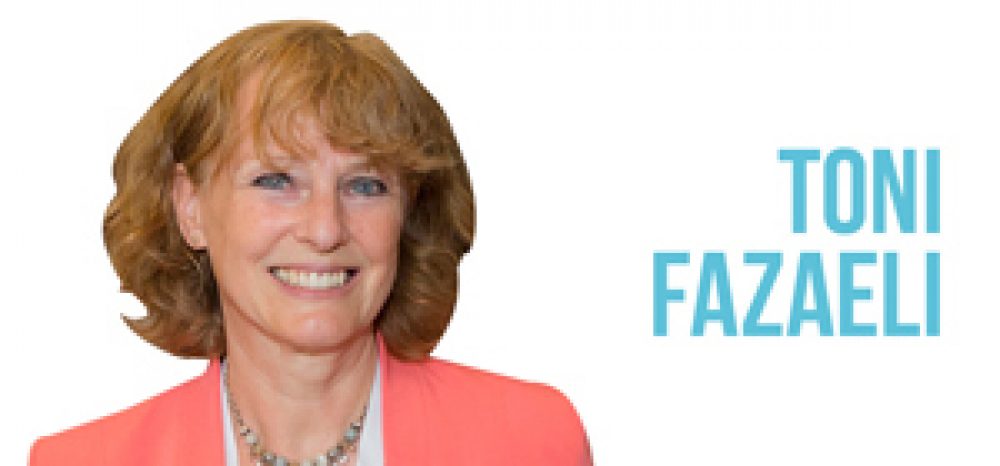Further education increases justice through its combined economic, social and moral purpose and, says Toni Fazaeli, to do this it needs qualified teachers.
In England, the FE sector aims to tackle social and educational injustices through offering around four million young people and adults a year excellent learning opportunities that give clear routes to good employment and higher levels of study, transforming a very large number of people’s lives for the good.
A soul-searching and proper question to ask is whether we can do even better for our learners, and whether the exercise of any policies or freedoms might lead to increasing any injustices.
A cardinal principle in medicine, credited to Florence Nightingale, is that the first duty of any hospital is to stop the spread of disease.
In FE it is surely to stop any increase in injustices for our learners?
Amartya Sen’s seminal thinking in his book The Idea of Justice helps us think about the tensions between freedom and justice, and identify possible boundaries in further education that should not be crossed because they are likely to increase injustices for learners. Sen argues that the critical assessment in diagnosing injustices involves considerations of freedoms, fairness, capabilities, duty, goodness, resources, happiness, wellbeing and, especially in our sector, learning.
A vital and topical question to consider is whether not having a national policy requiring initial teacher education leading to being professionally qualified constitutes an injustice for those starting to teach, and their learners. A reasoned moral choice has to be made.
Sen argues that reasoned discussion can accommodate conflicting positions, and that bad or weak reasoning needs to be confronted by better reasoning. To draw on weaker arguments that do not increase justice for learners — for example, that leaders in FE should be treated the same as vice-chancellors — is to sidestep what is important.
One person’s freedom can be another’s bond.
The freedom in today’s national policy for a FE employer to decide whether those they employ to teach are trained and become qualified as teachers curtails the freedom of individuals to be trained and become professionally qualified to be the best they can in their practice.
Second, the employer’s current freedom curtails any entitlement for young and adult learners, wherever they are in England, to be taught by individuals who are professionally trained and qualified for their role.
The third very significant impact of this freedom is a reduction in the likelihood of young and adult learners across the nation receiving the strongest chance of high-quality learning and success in their studies and training.
The clear case for the positive difference that initial teacher education makes to the quality of teaching is articulated in the Institute for Learning’s recently published collection of voices and evidence from the sector, “Should teaching qualifications be left to chance?”
These three major considerations show that the freedom currently given to employers will inevitably lead to an increased injustice for learners nationally, and also for teachers.
To test this thinking further, let us look at a parallel context. Which chief executives of hospitals are baying for the freedom to recruit unqualified surgeons, unqualified doctors or unqualified nurses?
Such freedom for individual hospitals as employers would surely lead to injustice for patients nationally, as well as undermining the credibility and public trust in our country’s hospital system.
In a House of Lords discussion recently about the employment of unqualified teachers in state schools, Baroness McIntosh pointed out “knowledge, enthusiasm and, indeed, natural gifts may be necessary but they are not sufficient in developing professional competence”.
We would not disagree if we were talking about train drivers or brain surgeons, she suggested, so why are teachers an exception?
Just as members of the public have certain expectations of health service professionals, I believe that parents, learners, businesses and communities have the right to expect consistent, high-quality teaching and learning, delivered by qualified teachers, as an unassailable contribution to economic, moral and social justice in our society.
Toni Fazaeli, chief executive of the Institute for Learning









Let’s face it, FE is a ‘soft target’, that’s why it’s being used to pilot Gove’s ludicrous ideas surrounding teaching qualifications. If implemented, this cuckoo scheme will decimate the FE sector and all it stands for. If he gets away with it here, his next target will be our state funded schools and who knows what after that.
Our main problem is that whilst we have smug, over-paid, obsequious ‘leaders’ who waste their time, and our money, whistling into the wind like this instead of taking the fight directly to the enemy by naming names and ruffling the feathers of those responsible for the ongoing injustices inflicted of the FE, government will continue to subjugate, exploit and press home their advantage
So come on ‘leaders’; Follow the example of our Doctors, Nurses, Lawyers and practically all other professional bodies; Step out of your comfortable little bubbles, earn your wages, stick your heads above the parapet, be forceful, be controversial. If you have the courage of your convictions, show us you are brave enough to do what’s right. Call for a vote of no confidence and start a ‘Campaign for Justice in FE’.